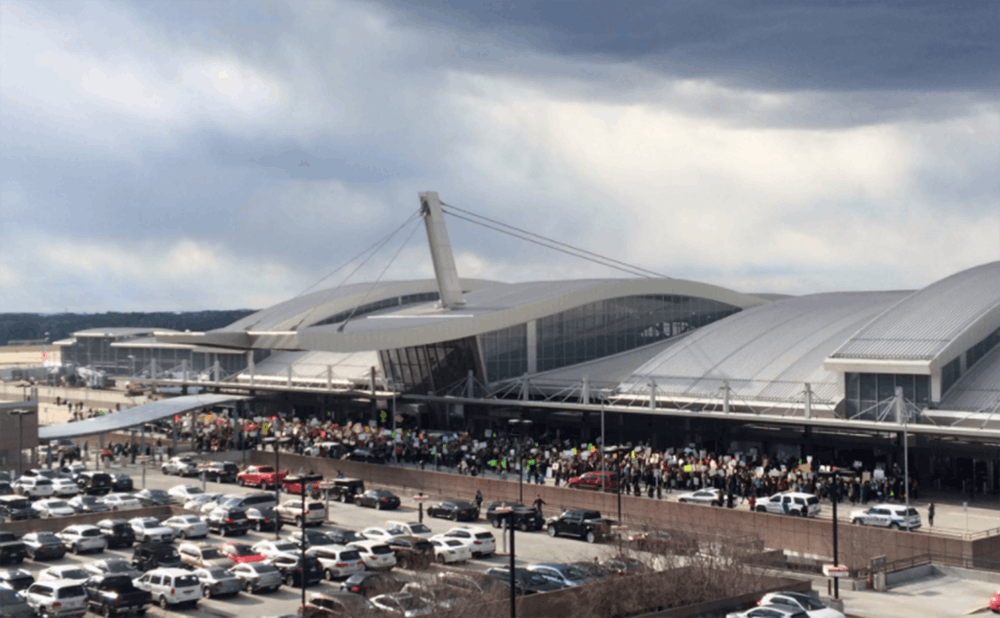All Updates:
The Chronicle spoke with Kadivar about his experiences and the confusion surrounding the executive order. Read the Q&A here. Updated at 5:17 p.m.
According to Reuters, a Duke religious studies professor and Iranian dissident Mohsen Kadivar is currently in Germany on a fellowship, and it is unclear whether he will be able to return, given Trump's executive order. Kadivar's fellowship lasts until July, according to the report, but he is concerned about what happens after that. Based on advice from the University's lawyers, Kadivar told Reuters that his wife cancelled a planned trip to visit him in Berlin. Updated at 3:26 p.m.
In a message to the Duke community Sunday morning, President Richard Brodhead and Provost Sally Kornbluth wrote that the University "cannot and will not share confidential student records with law enforcement agencies—local, state or federal—without a subpoena." Updated at 11:30 a.m.
Original Story:
Duke is still unsure how a recent executive order halting immigration from seven countries will impact the Duke community, Michael Schoenfeld, vice president for public affairs and government relations, wrote in an email Saturday.
The order, which was signed Friday by President Donald Trump and was partially stayed by a federal judge Saturday evening, halts all immigration to the United States from Iran, Iraq, Libya, Somalia, Sudan, Syria and Yemen. The stay allows refugees currently stuck in American airports to not be deported pending further legal resolution, although the ruling did not go as far as to let them into the country.
Duke sent an email to students, faculty and staff who might be affected by the order recommending “that foreign nationals from the affected countries avoid all international travel for the immediate future.”
“This is a very confusing and disturbing situation for everyone,” Schoenfeld wrote. “We have been in contact with lawyers and other experts throughout the day but it is still unclear how all this is going to work.”
Schoenfeld declined to comment on any individual cases, citing privacy and safety considerations, but wrote that Duke would continue to monitor the situation.
According to undergraduate class profiles released by the Office of Undergraduate Admissions, all four undergraduate classes had at least one Iranian student at the time of matriculation. The classes of 2017 and 2020 had at least one Syrian student. The class of 2018 had at least one Sudanese student, and the class of 2017 had at least one Iraqi student.
The order resulted in confusion across the country Saturday. Protestors gathered at a number of major airports across the country demanding the release of passengers detained as a result of the order. It is unclear whether or not those in the airports will be detained pending further resolution of the case, as some lawyers have expressed concern about.
Get The Chronicle straight to your inbox
Signup for our weekly newsletter. Cancel at any time.

